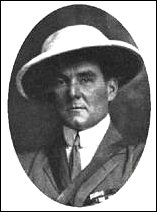Those of you who tried to park in any shopping mall last weekend know that we are in full consumption mode for the holiday season, which inevitably revolves around the notion of giving (or circulating) gifts.
But which ones to give? The LA Times offers some suggestions for the weird and unusual set, whereas Maisonneuve compiles an expensive list of excesses for the able bourgeois shopper. On the other hand, those of us with souls and morals will want to make a meaningful contribution to worthy organizations doing good things, to which we turn to Katha Pollitt, who provides a list of the needy in the current online edition of The Nation.
But gift-giving also implies reciprocal obligations and social distance. And it is at this point that we move into the anthropological universe of social theory and exchange theory. So please remember the name Marcel Mauss when ripping and trashing reams of wrapping paper under the pagan Christmas tree next weekend.
From the Anthrobase entry:
Mauss's most influential work is his Essay sur le don (1923–24; English translation: The Gift. Forms and functions of exchange in archaic societies, 1954), a comparative essay on gift-giving and exchange in "primitive" societies. On the basis of empirical examples from a wide range of societies, Mauss describes the obligations attendent on gift-giving: the obligation to give gifts (by giving, one shows oneself as generous, and thus as deserving of respect), the obligation to receive them (by receiving the gift, one shows respect to the giver, and concommittantly proves one's own generocity), and the obligation to return the gift (thus demonstrating that one's honor is - at least - equivalent to that of the original giver). Gift-giving is thus steeped in morality, and by giving, receiving and returning gifts, a moral bond between the persons exchanging gifts. At the same time, Mauss emphasizes the competitive and strategic aspect of gift-giving: by giving more than one's competitors, one lays claim to greater respect than them, and gift-giving contests (such as the famous North-West Coast Native American potlatch), are thus common in the ethnographic record. In this work, Mauss thus lays the foundation for a theoretical understanding of the nature of social relations.
Subscribe to:
Post Comments (Atom)

1 comment:
May I be the first to comment on your blog, there, uh, "Formosus"... ah! to actually "know" a blogger! You know that you and I are political twins - love the links, the humor. See you Thursday, with some of those ... como se dice? REGALOS de GALLETAS. Chao...por favor, llamame "El Huesito Peruano"
Post a Comment